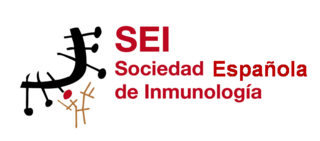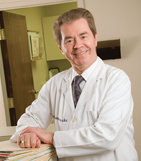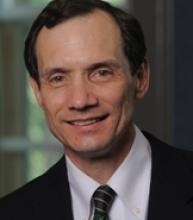
Immunology is a branch of biology and medicine that covers the study of immune systems in all organisms.
The National Institute of Allergy and Infectious Diseases is one of the 27 institutes and centers that make up the National Institutes of Health (NIH), an agency of the United States Department of Health and Human Services (HHS). NIAID's mission is to conduct basic and applied research to better understand, treat, and prevent infectious, immunologic, and allergic diseases.

Ruth Arnon is an Israeli biochemist and codeveloper of the multiple sclerosis drug Copaxone. She is currently the Paul Ehrlich Professor of Immunology at the Weizmann Institute of Science, where she is researching anti-cancer and influenza vaccinations.
Founded in 1943, the American Academy of Allergy, Asthma & Immunology (AAAAI) is a professional medical membership organization of nearly 6,800 allergist/immunologists and related professionals around the world with advanced training and experience in allergy, asthma and other immunologic diseases. The Academy is dedicated to the advancement of the knowledge and practice of allergy, asthma and immunology for optimal patient care.

Thomas Alexander Evelyn Platts-Mills, FRS son of British member of parliament and barrister John Platts-Mills, is a British allergy researcher and director of the Division of Allergy and Clinical Immunology at the University of Virginia School of Medicine.

Merrylands High School is a coeducational, comprehensive high school in Merrylands, a suburb in Western Sydney, New South Wales, Australia.
The International Union of Immunological Societies (IUIS), a member of the International Council for Science, is an organization which serves as an umbrella organization for many national and regionally grouped immunological societies. The organization was founded in 1969. The ten founding member societies were the American Association of Immunologists, British Society for Immunology, Canadian Society for Immunology, Dutch Society for Immunology, Gesellschaft fur Immunologie, Israel Immunological Society, Polish Society of Immunology, Scandinavian Society for Immunology, Societe Francaise d’immunologie, and Yugoslav Immunological Society. IUIS had 83 member societies in 2019.
Max Samter was a German-American immunologist who first extensively studied the triad between asthma, aspirin allergy, and nasal polyps that became known as Samter's triad, now aspirin-exacerbated respiratory disease. Samter was a third generation doctor and obtained medical training in Europe. After fleeing Nazi occupation in Germany, Samter had a long career in medical research in the United States. He is a pioneer in the field of immunology, having written many of the foundational textbooks of the field. Samter founded The Max Samter Institute for Immunology Research at Grant Medical Center, and after his death it was renamed in his honor.

Stefan Hugo Ernst Kaufmann is a German immunologist and microbiologist and is one of the highly cited immunologists worldwide for the decade 1990 to 2000. He is amongst the 0.01% most cited scientists of ca. 7 million scientists in 22 major scientific fields globally.
Charlotte Cunningham-Rundles, an American physician, is the David S. Gottesman Professor of Immunology at the Mount Sinai School of Medicine in New York City. a specialist in primary immunodeficiency disorders. She is also director of the Immunodeficiency Clinic at Mount Sinai Hospital, and the program director of their Allergy Immunology Fellowship training program.

The Spanish Society for Immunology is a legally recognized professional non-profit organization in Spain, dedicated to promote and support excellence in research, scholarship and clinical practice in immunology. It has above 1.000 members in the field of health, research, teaching and industry, almost all Spanish, but also Latin American. It was founded in 1975 by Fernando Ortiz Masllorens.

Alain L. de Weck,, was a Swiss immunologist and allergist. His main scientific contributions were in the area of characterization and prevention of drug allergy. He was the founding director of the Institute of Clinical Immunology at the University of Bern from 1971 to 1993 and authored or co-authored over 600 peer-reviewed publications. He is the recipient of a number of patents that led to commercial allergy products and services. He served as president of international scientific organizations such as the International Union of Immunological Societies (IUIS) and the International Association for Allergy and Clinical Immunology (IAACI) and was founder and later CEO of the Centre Médical des Grand-Places (CMG) company, acquired by Heska of Fort Collins in 1997. In later years he continued his research at the University of Navarra in Spain and wrote on a wide range of topics such as the distinction between science and pseudo-science, the emergence of genetically modified organisms (GMOs) and comparative health care policy.
Elizabeth Simpson OBE FRS FMedSci is a British biologist. She is the Emeritus Professor of Transplantation Biology at Imperial College London. Simpson is particularly known for her elucidation of the nature of male-associated minor transplantation antigens, and their roles in the generation of immunological tolerance, graft versus host disease, and transplant rejection.

Kari C. Nadeau is the Chair of the Department of Environmental Health at Harvard School of Public Health and John Rock Professor of Climate and Population Studies. She practices Allergy, Asthma, Immunology in children and adults. She has published over 400+ papers, many in the field of climate change and health. Dr. Nadeau, with a team of individuals and patients and families, has been able to help major progress and impact in the clinical fields of immunology, infection, asthma and allergy. Dr. Nadeau is a member of the National Academy of Medicine and the U.S. EPA Children’s Health Protection Committee.

Marek Maria Pienkowski is a Polish-American medical researcher and clinician focused on broad aspects of immunological diagnosis and treatment. He collaborated in important discoveries related to immunology, viral oncogenes, genetic engineering, and cloning and has implemented desensitization treatments for allergic disorders based on this research into his clinical practice.
Barry R. Bloom is Harvard University Distinguished Service Professor and Joan L. and Julius H. Jacobson Professor of Public Health in the Department of Immunology and Infectious Diseases and Department of Global Health and Population in the Harvard T.H. Chan School of Public Health in Boston, where he served as dean of the faculty from 1998 through December 31, 2008.
Suranjith Seneviratne is a doctor from Sri Lanka who practices in allergology and immunology.
Frances Estelle Reed Simons is a Canadian physician and researcher. She was named to the Canadian Medical Hall of Fame in 2017.

Dr. Michael J. Lenardo, is the chief of the Molecular Development and Immune System Section and the founder and co-Director of the Clinical Genomics Program at the National Institute of Allergy and Infectious Disease (NIAID), National Institutes of Health (NIH). Trained as a geneticist, molecular biologist, and immunologist, his research examines how cells of the immune system defend themselves against various pathogens, including viruses and bacteria. His research has investigated genetic abnormalities in the immune system, mechanisms of cell death, genetic diseases of immune homeostasis and autoimmunity, and development of novel diagnostics and therapeutics for diseases of the immune system. Lenardo's contributions to science and medicine have shown the possibilities of genomic research in developing precision medicine diagnoses and treatments for disease in humans. In 2006 he was appointed Officer of the Most Excellent Order of the British Empire (O.B.E.) by Queen Elizabeth II. In 2019 he was inducted into the National Academies of Sciences and the National Academy of Medicine, considered among the highest honors awarded to a U.S scientist and medical researcher respectively.
Adam Fox is a paediatric allergy consultant and a child allergy specialist. He is President of the British Society of Allergy and Clinical Immunology, and he won the Raymond Horton-Smith Prize in 2012 for his doctoral thesis.










